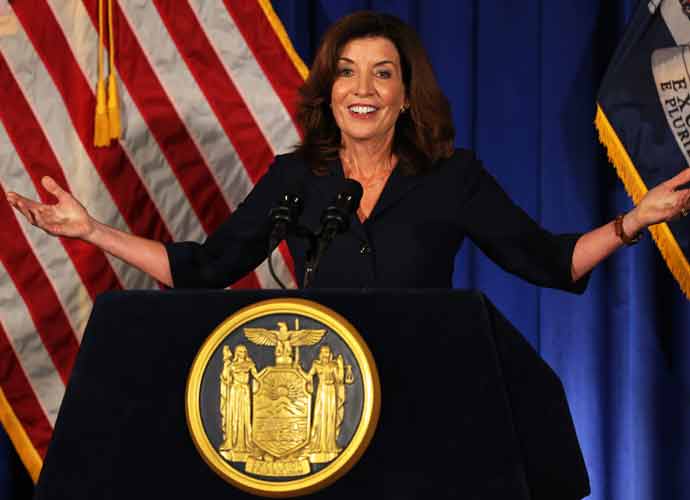After N.Y. Gov. Kathy Hochul Postpones Congestion Pricing Plan, Legislators Try To Work Around Her
On Friday, New York Governor Kathy Hochul announced an indefinite postponement of a $1 billion bill intended to offset the Metropolitan Transportation Authority’s (MTA) anticipated revenue loss from congestion pricing, creating a significant funding gap for the MTA.
The proposal aimed to reduce New York City traffic and raise billions for its deteriorating subway system through a new toll on Manhattan drivers. It was expected to pass both houses easily and be approved before the Legislature adjourned. However, it now remains uncertain following the governor’s reversal.
“I can’t do anything right at this time that would also suck the vitality out of this city when we’re still fighting for our comeback,” said Hochul at a news conference in Albany.
The bill aimed to raise $1 billion for the MTA, supporting $15 billion in capital investments. It would have allocated funds from the state’s general fund for the next year, enabling the MTA to issue $15 billion in bonds for its projects.
Subscribe to our free weekly newsletter!
A week of political news in your in-box.
We find the news you need to know, so you don't have to.
The plan was expected to pay for the Second Avenue Subway extension, modern signaling that allows subway trains to move faster, subway track maintenance and the purchase of new buses and train cars.
While Hochul did not specify how the funds would be replaced, she stated, “We gave a lot of thought to this,” and added, “No one should question by commitment or the leaders’ commitment to ensuring that these projects are properly funded.”
In announcing her decision to block the congestion pricing toll, Hochul cited affordability concerns as a top issue for New York voters, explaining that her choice was driven by economic considerations and conversations with New Yorkers.
On Thursday, Hochul proposed a Payroll Mobility Tax on New York City employers to compensate for the lost toll revenue. However, lawmakers rejected the idea, arguing that higher taxes would hinder the city’s recovery from COVID-19 and contradict her rationale for halting the congestion pricing program.
Senate Democrats met privately on Friday morning to discuss the legislation. To pass the bill without Republican support, they would need 32 of their 41 senators. However, six Democrats – Zellnor Myrie, Andrew Gounarders, Julia Salazar, Kristen Gonzalez, Jabari Brisport and Jessica Ramos – have already stated that they would not support it.
Get the most-revealing celebrity conversations with the uInterview podcast!







Leave a comment